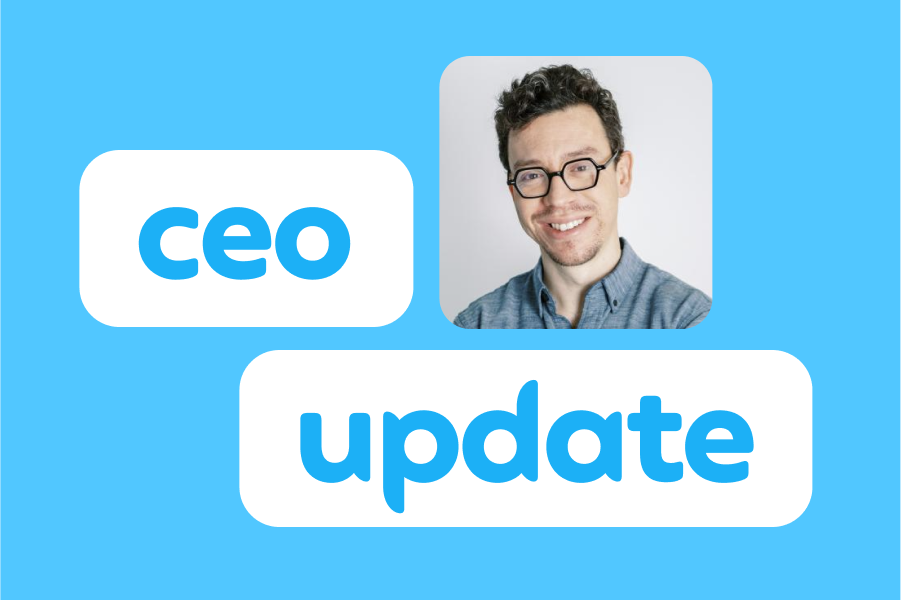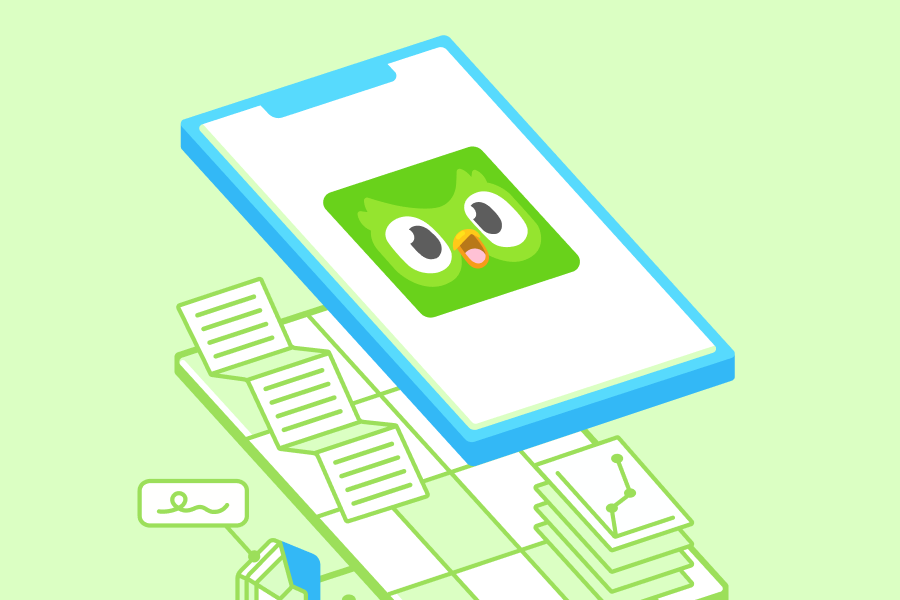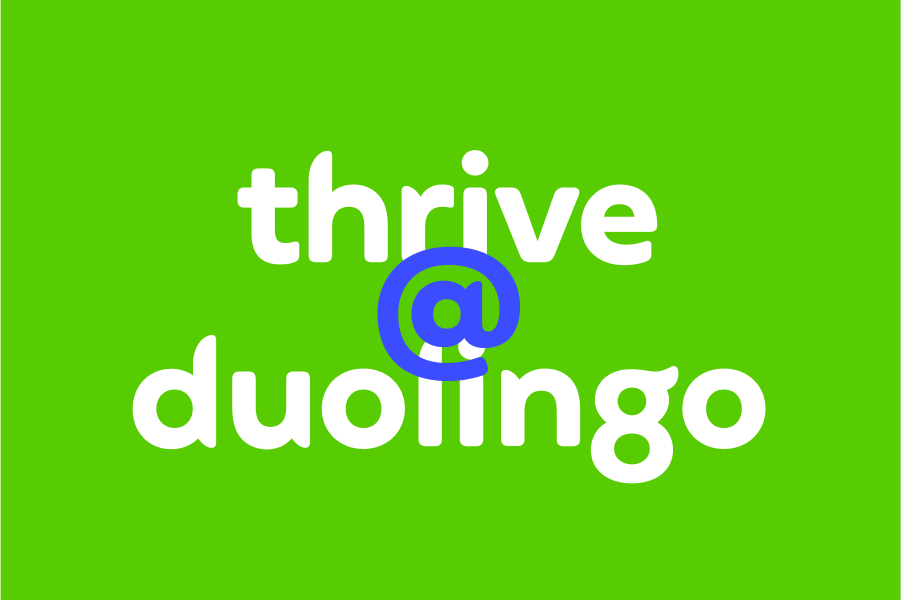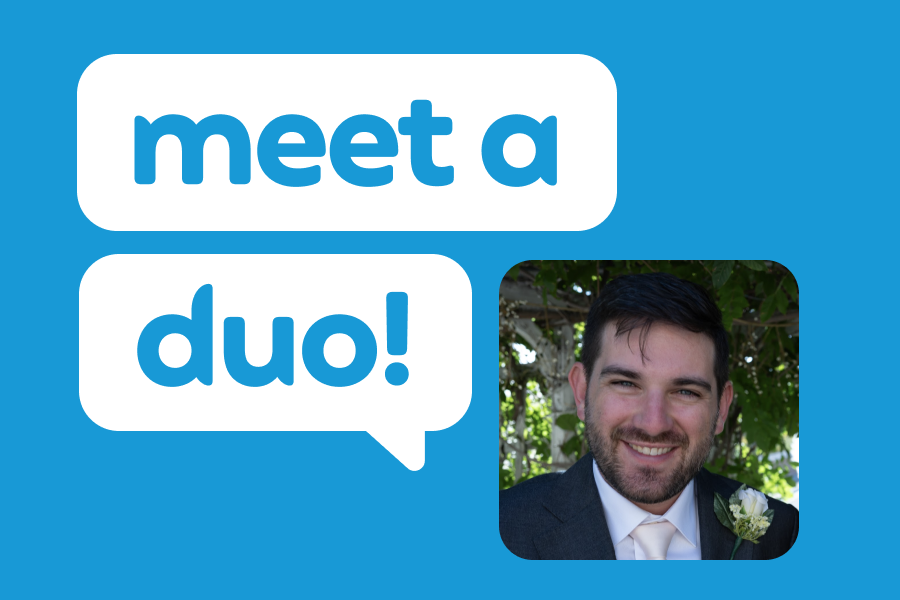Duolingo began with a question: what if we could teach languages for free? Learning a language used to require expensive classes, CDs, or tutors. I grew up in Guatemala, where learning English could double your income potential and change your family’s life. It always seemed unfair that only those with money could afford a good education, while those without money could barely learn to read and write. This idea became the mission of our company: to develop the best education in the world and make it universally available – a mission that still guides us today.
In 2011, I was a Professor of Computer Science at Carnegie Mellon University, and I was in a fortunate position after selling two companies to Google. It was a time when I could step back and ask myself, “What kind of world do I want to live in and how can I make the greatest impact in creating that world?” I knew I wanted my next project to address inequality in education. That’s when my cofounder, Severin Hacker, and I came up with the idea for Duolingo. A free website (not even an app!) where you could learn a language while playing a game. We thought this would be good for the world. We didn’t know yet if it would be good for business.
Before the launch, I remember thinking it would be pretty cool if one million people ever used our website. In 2012 we launched our app and since then, Duolingo has become the most downloaded education app in the history of the App Store. It’s now also the top-grossing education app worldwide. What makes me most proud is how we’ve accomplished this without compromising our mission – all of our learning content remains 100% free.
Today I see evidence that we are fulfilling our mission in the fact that Duolingo is used by people all across the economic spectrum. At least on Duolingo, more money can’t buy you a better education. Now I know that doing good for the world can be good for business, too. When I think back on how we’ve ended up here, the two best decisions we made were:
- Give the product away for free. This allowed us to scale rapidly, which has given us access to unprecedented amounts of data on how people learn.
- Make learning fun. Learning a language is really hard work, and the hardest part is staying motivated. Gamification is the key to getting learners to stick with it.
As Duolingo grew from a popular app into a mature company, we had another modest goal in mind: build a company where people enjoy coming to work everyday. We’re now a team of 250 of the world’s best problem solvers working together between our HQ in Pittsburgh and our offices in New York, Seattle, and Beijing. We’re all here because we want our work to matter in the world and to make a positive impact in people’s lives. That’s a big reason why we have a more than 95% employee retention rate – way above the industry average.
Another core value is to focus relentlessly on making our product better. The majority of our staff works on this. Everyone, from the interns to the executives, has the ability to contribute ideas that make an impact for millions of learners. Our first operating principle is “learners first,” and you will hear that phrase guiding our decisions. We test everything to check our assumptions and prove our theories with data. This doesn’t always make the decision easier, and we often have to find a balance between what’s best for learning, what’s fun, and what our learners want. We know from our own research and from the stories we hear from our learners that Duolingo is effective at teaching to an intermediate level if you stick with it.
We also know that we have an enormous amount of work in front of us to teach more languages, teach them better, and eventually to teach more than just second languages. As we have grown, so have our ambitions for how we can make a positive impact in the world. And we’re going to need a lot more people to help us do it.
Despite the progress we’ve made, I like to remind our team that we haven’t won yet. For me, winning means making sure everyone in the world who wants to learn a language has access to learn for free on Duolingo. It also means making sure that Duolingo remains a place where everyone enjoys coming to work, a place where your contributions matter, and a place where doing good for others is rewarding for you, too. That’s the kind of world I want to live in.
Follow @luisvonahn on Twitter. Follow @duolingo for more company news and updates.



